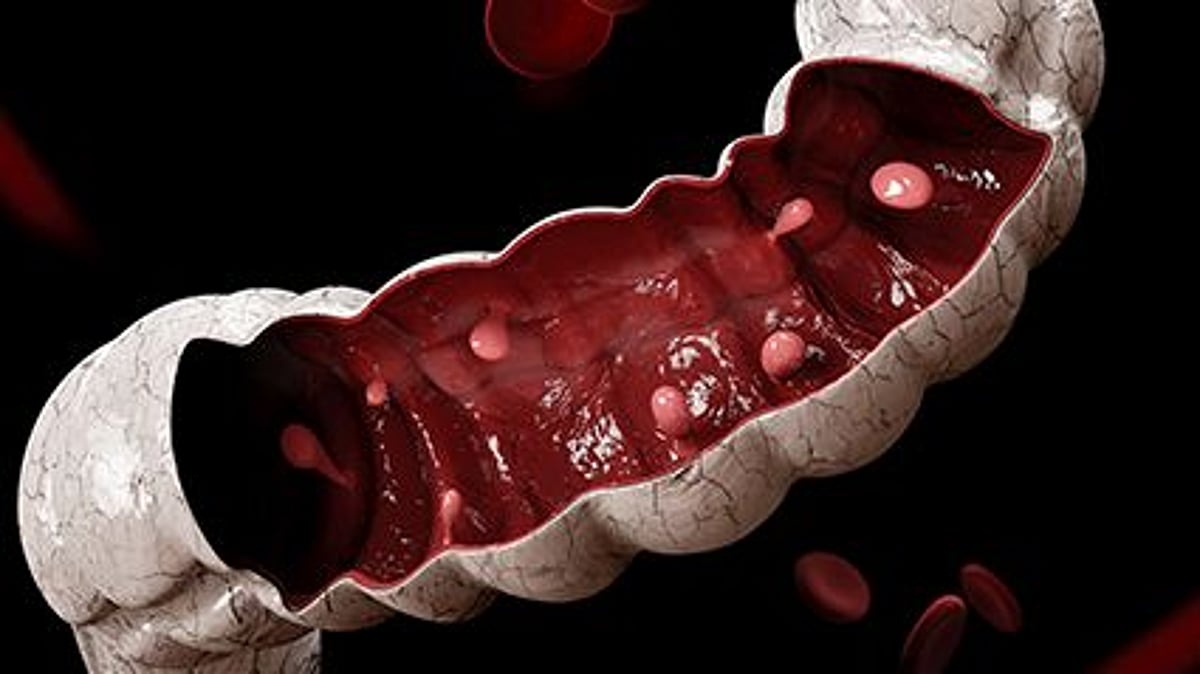Cold Versus Hot Snare Polypectomy Cuts Risk for Delayed Bleeding

TUESDAY, Feb. 21, 2023 (HealthDay News) -- Cold snare polypectomy (CSP) for small colorectal polyps reduces the risk for delayed postpolypectomy bleeding compared with hot snare polypectomy (HSP), according to a study published online Feb. 21 in the Annals of Internal Medicine.
Li-Chun Chang, M.D., Ph.D., from National Taiwan University Hospital in Taipei, and colleagues compared the risk for delayed bleeding after polypectomy with CSP versus HSP in a multicenter randomized controlled study involving 4,270 participants aged 40 years or older with polyps of 4 to 10 mm (2,137 were randomly assigned to CSP and 2,133 to HSP).
The researchers found that 0.4 and 1.5 percent of patients in the CSP and HSP groups, respectively, had delayed bleeding (risk difference, −1.1 percent). The CSP group also had lower severe delayed bleeding (0.05 versus 0.4 percent; risk difference, −0.3 percent). The CSP group had shorter mean polypectomy time (119.0 versus 162.9 seconds); no difference was seen between the groups in successful tissue retrieval, en bloc resection, and complete histologic resection. Fewer emergency service visits occurred in the CSP than the HSP group (0.2 versus 0.6 percent).
"This trial showed that CSP reduces the risk for mild and severe delayed bleeding events after polypectomy, providing evidence-based guidance for managing small colorectal polyps," the authors write.
The study was funded by Boston Scientific Corporation.
Abstract/Full Text (subscription or payment may be required)
Related Posts
Motavizumab, Nirsevimab, Palivizumab Beneficial for RSV Prevention
TUESDAY, March 7, 2023 (HealthDay News) -- Significant benefits are seen with...
Health Highlights: Dec. 27, 2022
Race, residence can influence prostate cancer outcomes. Being Black or living in...
Biden Administration to Invest $100 Million to Ease Health Worker Shortage
https://consumer.healthday.com/b-10-15-biden-admin...
Un fármaco para el cáncer podría ser un potente tratamiento para la EM
JUEVES, 14 de julio de 2022 (HealthDay News) -- Un medicamento que se usa "fuera...
